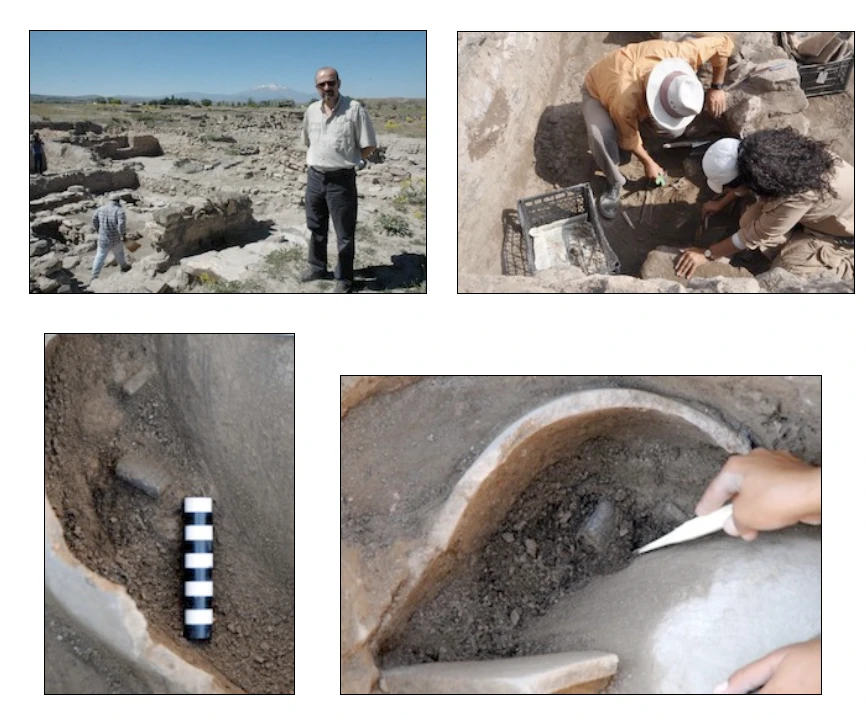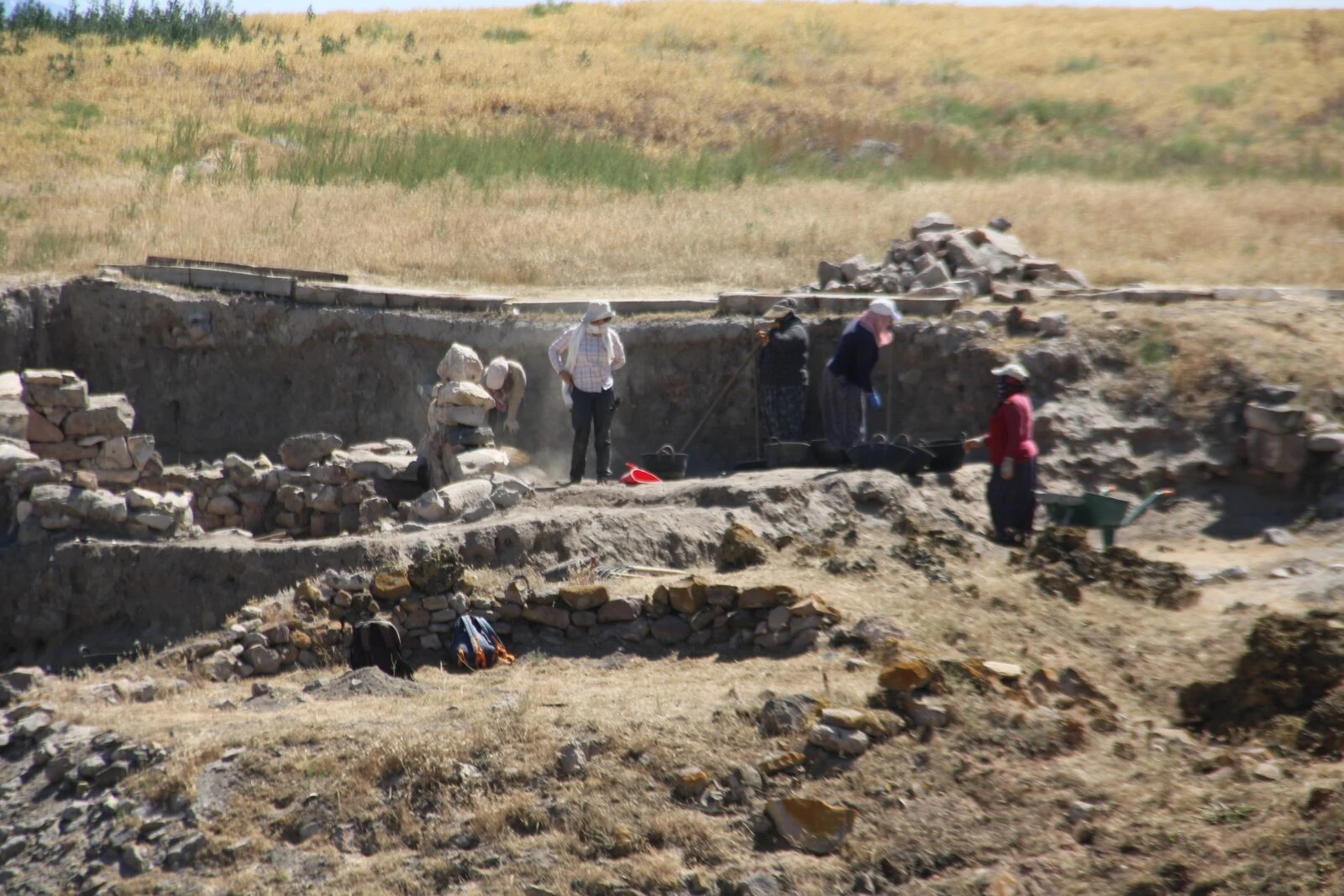World’s oldest ‘will’ found in Kultepe sheds light on ancient Anatolia’s legal practices
 A photo collage featuring a replica cuneiform tablet and images from the ongoing Kultepe excavations. (Photo collage by Koray Erdogan/Türkiye Today)
A photo collage featuring a replica cuneiform tablet and images from the ongoing Kultepe excavations. (Photo collage by Koray Erdogan/Türkiye Today)
Kultepe Kanesh-Karum, located along the Kayseri-Sivas highway, has long been recognized as one of the most important archaeological sites in Anatolia, with its roots tracing back to over 6,000 years ago. Under the leadership of Professor Fikri Kulakoglu, the ongoing excavations continue to uncover remarkable findings, most notably the discovery of cuneiform tablets that provide extraordinary insight into the social and legal systems of the time.
These findings not only deepen our understanding of ancient trade but also highlight the early existence of legal concepts such as wills and inheritance that remarkably echo practices seen in modern society.

A glimpse into legal life of ancient Anatolia
Professor Kulakoglu, who has been at the helm of the Kultepe excavations for over 75 years, explains that the tablets discovered offer invaluable evidence of how ancient Anatolian societies organized their lives, legal practices, and family structures.
The documents reveal that the concept of a “will”—used to protect the future of one’s family and wealth—existed long before it was formalized in modern legal systems. “Our findings suggest that the concept of inheritance and the protection of one’s legacy were already well-established practices in ancient Anatolia,” says Prof. Kulakoglu.
Among these tablets, one of the most significant revelations is the presence of marriage contracts that not only outlined social and economic agreements between couples but also set forth legal stipulations in the event of divorce or death. The legal implications of these documents reveal a well-developed society that valued personal and familial security.
Women’s role in ancient Anatolian society: A progressive legal framework
One of the most fascinating aspects of the Kultepe findings is the recognition of women’s legal rights in inheritance. According to Kulakoglu, the legal documents uncovered reveal a progressive understanding of women’s roles, as they were entitled to inherit 50% of their husband’s wealth. This legal provision in Kultepe stands out not only in the context of ancient Anatolia but also when compared to other ancient cultures, where women often lacked such rights. The legal status of women at Kultepe was integral, making the site a standout example of gender equality in the ancient world.

“Women were not just viewed as passive recipients in marriage; they were seen as equal participants, with significant rights to property and wealth. This is a remarkable feature that sets Kultepe apart from other ancient civilizations,” Kulakoglu asserts.
Modern legal concepts in ancient setting
The Kultepe tablets demonstrate a sophisticated legal system that not only governed transactions and trade but also ensured the welfare of individuals and families. The existence of legal documents such as marriage contracts, wills, and inheritance instructions highlights the early and advanced nature of Anatolian legal systems.
These findings position Kultepe as a remarkable site where early human civilization and legal thinking took shape in ways that continue to resonate in modern legal frameworks.

Kultepe as key to understanding early Anatolian society
The ongoing excavations at Kultepe are transforming our understanding of ancient Anatolia. The discovery of cuneiform tablets, particularly those detailing wills and inheritance, provides crucial evidence that these legal concepts were fundamental to the social fabric of early Anatolian civilizations.
The findings at Kultepe not only enrich our knowledge of the past but also offer a new perspective on the roles of women, family structures, and the development of legal systems in one of the world’s oldest cultures.



